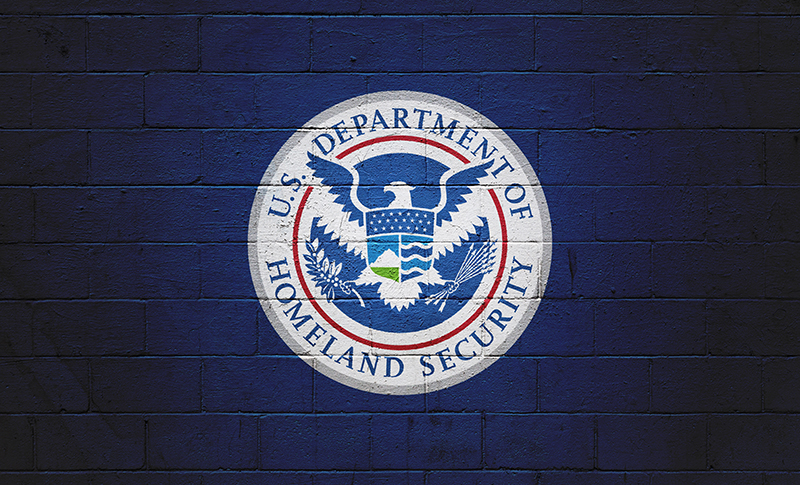
The U.S. Department of Homeland Security (DHS) announced this week that it will be rescinding the Trump administration’s terminations of Temporary Protected Status (TPS) for El Salvador, Honduras, Nepal, and Nicaragua. The Department also announced that the DHS Secretary will be extending these countries’ TPS designations for an additional 18 months but, notably, not “redesignating” them, which would have expanded the pool of potential beneficiaries by allowing aliens who entered the country after the most recent designation to be eligible for TPS protection from removal and work authorization.
Under section 244 of the Immigration and Nationality Act (INA), the Secretary of Homeland Security may grant TPS (a form of protection from removal) and employment authorization eligibility to nationals of designated countries. In order for a country to receive a TPS designation, the Secretary must determine that a country is experiencing:
- An ongoing armed conflict within the country such that requiring the return of nationals to that country would pose a serious threat to their personal safety;
- A natural or environment disaster resulting in a substantial, but temporary, disruption of living conditions such that the foreign state is temporarily unable to adequately handle the return of their nationals; or
- “Extraordinary and temporary” conditions in the foreign state that prevent nationals of the state from returning safely (unless the secretary determines that permitting such aliens to remain temporarily in the United States is contrary to the national interest of the United States).
As long as TPS is in effect, those aliens who have been granted status may not be removed, except under very limited circumstances, and are authorized to work. An alien does not need to be in the United States legally to be eligible. There are currently 17 countries with active TPS designations: Afghanistan, Burma, Cameroon, El Salvador, Ethiopia, Haiti, Honduras, Nepal, Nicaragua, Somalia, South Sudan, Sudan, Syria, Ukraine, Venezuela and Yemen.
In 2017 and 2018, the Trump administration announced its plans to terminate the TPS designations for El Salvador, Haiti, Honduras, Nepal, Nicaragua, after it determined that the conditions in these countries no longer justified their TPS designations. To many immigration experts, these terminations (or wind-downs) were long-overdue, as most of these designations were premised on years-old or decades-old storms or emergencies. For example, Honduras and Nicaragua were originally designated for TPS in 1998 (24 years ago) because of damage caused by Hurricane Mitch. El Salvador was designated for TPS in 2001 (22 years ago) because of damage caused by an earthquake.
Congress created TPS to be a temporary form of relief, to be terminated when conditions in designated countries improve. TPS was never meant to provide a long-term or permanent immigration status for aliens living in the United States illegally. Numerous administrations, however, have caved to political pressure to extend TPS for nationals of these countries despite the statute’s clear directives.
Why do DHS’s rescissions matter? The rescissions of the terminations were announced just a week before the Ninth Circuit Court of Appeals is expected to hear arguments concerning a 2018 legal challenge to the Trump administration’s decisions to terminate. In that case, now called Ramos v. Mayorkas, plaintiffs challenged the TPS designation terminations on Administrative Procedure Act and Equal Protection grounds, despite that the INA explicitly prohibits judicial review “of any determination of the [Secretary of Homeland Security] with respect to the designation, or termination or extension of a designation, of a foreign state,” under INA § 244(b)(5)(A).
In 2020, the Ninth Circuit Court of Appeals vacated the preliminary injunction a federal district court judge issued in that case that prohibited DHS from terminating TPS designations from covered countries. However, “because the [Court of Appeals] has not issued its directive to the district court to make that ruling effective,” the injunction remains in place at this time. In February 2023, the Court of Appeals agreed to plaintiffs’ request to reconsider the ruling en banc.
Importantly, DHS’s rescissions of the termination decisions may allow an estimated 334,000 aliens to retain status under TPS, status that they would have otherwise lost if the Ninth Circuit Court of Appeals rules again in the government’s favor (that is to say that DHS’s TPS designations are not subject to judicial review). Accordingly, yesterday’s announcement appears to be a litigation strategy that will allow the Biden administration to continue to argue that the Secretary’s decisions on TPS designations are not reviewable by the courts, while putting into effect a policy-outcome that favors the plaintiffs’ interests and the Biden administration’s political goals.
